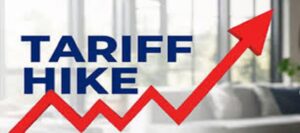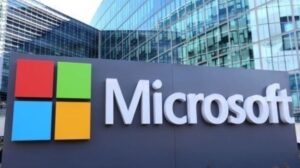Telecom
Nigeria Studying Security Challenges of 5G Technology
Nigeria Communications Commission (NCC), has said that 5G technology will go through rigours testing to actually know the security challenges there in.
This is as Nigeria gets set to join the league of the users of the latest 5G technology in the world, with concerns that security protocols and algorithms for 5G are now being ported from 4G standard and experts have discovered that this can allow device fingerprinting for targeted attacks and Man-in-the-Middle (MiTM) attacks. .
Researchers have also discovered three security flaws in both 4G and 5G, which can be exploited to intercept phone calls and track the locations of cell phone users.
And the scary part is that academics are saying that anyone with a little knowledge of cellular paging protocols will be able to conduct this kind of attack.
But Professor Umar Garba Dambatta, executive vice chairman and chief executive officer (EVC/CEO), NCC said that “As we know the benefits, which includes, faster speeds, very low latency and much better capacity; but we should also know the risk associated with it more specifically the security dimensions, so that we are careful of what we are adopting,”.
Speaking after being conferred with the Special Fellowship of the Nigeria Institute of Electronic and Electrical Engineers which came with an Award of Excellence in Kano, at the weekend, during the Distinguished Electrical and Electronic Annual Lectures, Professor Dambatta, noted that many countries are very cautious of the security dimensions as they also adopt the 5G Technology.
“Although Nigeria should not be left behind, because the 5G Technology is new it still requires being extremely careful, which is why only a trial would reveal what the risks are, and that is why we are doing what we are doing to to address the challenges associated with the technology,” he explained.
Telecom
Nigeria Has World’s Most Affordable Data Costs – GSMA
Nigeria has an average data cost of $0.38 per gigabyte, making her the most affordable countries globally and one of the cheapest in Africa for mobile data services.

United States averages $6 per gigabyte and South Africa with $1.77 per gigabyte rank the highest globally and in Africa respectively.
According to the GSMA, Nigerian data costs, as a percentage of Gross National Income (GNI) per capita, are among the lowest across Africa.
The reports by the body lends weight to telecom operators advocacy for tariff adjustments to address economic pressures threatening the sector’s sustainability.
The GSMA report, titled “The Role of Mobile Technology in Driving the Digital Economy in Nigeria,” highlighted Nigeria’s competitive data pricing, which is significantly lower than other African nations, such as Kenya ($0.59 per gigabyte), Ethiopia ($0.68 per gigabyte), and South Africa ($1.77 per gigabyte).
By contrast, the United States averages $6 per gigabyte, underscoring Nigeria’s advantage in offering cost-effective connectivity.
The cost of mobile data in Africa varies greatly by country and region.
Data costs can refer to the cost of mobile data or the cost of acquiring, maintaining, and using business data.
In 2023, the average cost of 1 GB of mobile data in Sub-Saharan Africa was $3.31, while in Northern Africa it was $0.86.
Telecommunications operators in Nigeria have been requesting some policy changes as well as tariff rebalancing to enable them deliver support to the Government’s digital economy objectives.
They have called for the simplification and improvement of the Right of Way (RoW) charging and administration process, harmonised across the country
According to them, all government authorities (at national and sub-national levels) should apply the national maximum RoW fee of N145 per/LSQM adopted by the National Economic Council (NEC) for the deployment of fibre across all states in Nigeria.
There should be a single point of contact in each state for the RoW application process while the duration for the approval process should be digitalised and limited to a maximum of one month.
Simplification and reduction of the tax burden on the mobile sector
On tariff, recall that the Association of Licensed Telecommunications Operators of Nigeria (ALTON) and the Association of Telecommunications Companies of Nigeria (ATCON) had urged the Nigerian Communications Commission (NCC) to consider reviewing tariffs upward to address rising operational costs.
Nodding in agreement, Bismarck Rewane, chief executive officer, Financial Derivatives, said the proposed tariff hike by telecommunications will help reduce inflation in the country.
He said it would help to reduce inflation because it increases productivity, stressing that the price of MTN shares went up by 10% to 220.
Rewane reiterated that investors had already factored that in, adding that they are expecting a lot of good goodies.
“But more important to think about is the fact that because of an increase in tariff and an increase in investment to make the industry sustainable, they’re going to see an increase in productivity, not directly but indirectly.
“Any increase in productivity and output is likely to allow inflation to moderate, which is the goal. So, we heard from the policymaker, Bosun Tijani, who was very clear that we want a sustainable sector. But we also heard from the regulator saying that we will hold these guys to quality of service.
“We also heard from the operators, MTN that they are all revving up. So in all, there are economic benefits because of increased output and productivity. Two, policymakers are aligned because they want this to lead to a moderation in inflation,” he added.
He further said that it was not a bad deal and re-echoed the minister’s comment that the tariff hike will not be 100 per cent.
“Will they get 100%? No, they will definitely not. We suspect that we are going to likely see something between 40 and 50% which is fair after so many years of static changes,” Rewane added.
Telecom
Bismarck, Economist Claims Planned Tariff Hike by Telcos Will Reduce Inflation
Bismarck Rewane, chief executive officer, Financial Derivatives, has said the proposed tariff hike by telecommunications will help reduce inflation in the country.

Rewane made this statement on Channels Television’s Business Morning on Thursday.
Recall that Association of Licensed Telecommunications Operators of Nigeria (ALTON) and the Association of Telecommunications Companies of Nigeria (ATCON) had urged the Nigerian Communications Commission (NCC) to consider reviewing tariffs upward to address rising operational costs.
On January 3, Karl Toriola, chief executive officer (CEO), MTN Nigeria, said telcos want a 100 percent tariff hike.
According to Rewane, who previously supported the plans for a tariff hike, the move will make the sector more sustainable.
He said it would help to reduce inflation because it increases productivity, stressing that the price of MTN shares went up by 10% to 220.
Rewane reiterated that investors had already factored that in, adding that they are expecting a lot of good goodies.
“But more important to think about is the fact that because of an increase in tariff and an increase in investment to make the industry sustainable, they’re going to see an increase in productivity, not directly but indirectly.
“Any increase in productivity and output is likely to allow inflation to moderate, which is the goal. So, we heard from the policymaker Bosun Tijani, who was very clear that we want a sustainable sector. But we also heard from the regulator saying that we will hold these guys to quality of service.
“We also heard from the operators, MTN that they are all revving up. So in all, there are economic benefits because of increased output and productivity. Two, policymakers are aligned because they want this to lead to a moderation in inflation,” he added.
He further said that it was not a bad deal and re-echoed the minister’s comment that the tariff hike will not be 100 per cent.
“Will they get 100%? No, they will definitely not. We suspect that we are going to likely see something between 40 and 50% which is fair after so many years of static changes,” Rewane added.
Telecom
Microsoft to Spend $80Bn on AI Data Centres
In a bid to build AI-enabled data centres, Brad Smith, vice chair and president, Microsoft has disclosed the company’s plan to spend approximately $80 billion in its current financial year (to end in June), with more than half of that investment designated for the US.

Smith in a blog post, explained the tech giant plans to use the data centres “to train AI models and deploy AI and cloud-based applications around the world.”
Smith welcomed U.S. President Donald Trump to his second term in office, he cautioned against “heavy-handed regulations” that could slow down the private sector.
“The most important US public-policy priority should be to ensure that the US private sector can continue to advance with the wind at its back,” Smith stated.
He further explained that the U.S. “needs a pragmatic export control policy that balances strong security protection for AI components in trusted data centers with the ability for U.S. companies to expand rapidly and provide a reliable source of supply to the many countries that are American allies and friends.”
Stating that the US is well-positioned to flourish in its development of AI due to solid technology development and an innovative private sector.
“If the Trump Administration can develop a strong national AI talent strategy and use AI to make the government more effective and efficient, it will put the country on a promising path.”
He stated the U.S. is in a strong position to “win the essential race with China by advancing international adoption of American AI.”
Smith further claimed U.S. “products are more trusted than their Chinese counterparts, and our private sector is unmatched in its ability to invest in infrastructure around the world.”

 E-Financial2 days ago
E-Financial2 days agoSEC to Strengthen Borrowing Framework for Governments, Corporates

 Telecom2 days ago
Telecom2 days agoBismarck, Economist Claims Planned Tariff Hike by Telcos Will Reduce Inflation

 E-Business2 days ago
E-Business2 days agoKaspersky Reviews Main Business Headache Related to IT Security

 General News1 day ago
General News1 day agoNigeria Recovers $52.88m in Assets Linked to Former Petroleum Minister Diezani Alison-Madueke

 General News1 day ago
General News1 day agoTransform Your Health with QNET’s BELITE 123: The Ultimate Weight Management Solution

 E-Business2 days ago
E-Business2 days agoFG to Add Iris Biometrics to Digital ID for more Inclusion

 E-Business1 day ago
E-Business1 day agoCybersecurity Firm Warns of Phishing Threats Targeting Telegram Premium

 News2 days ago
News2 days agoNBS Website Still Down More than 3 Weeks after Cyber Attack




















